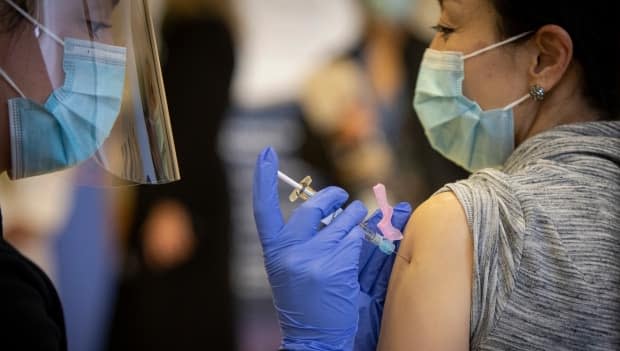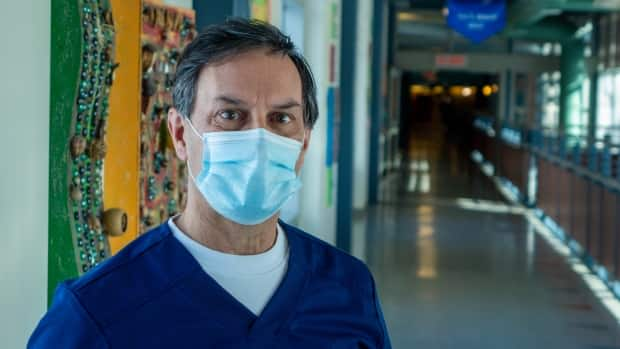55% of Ontario's nursing home workers opted for vaccine

Despite the fact long-term care workers were the first in Ontario invited to get the COVID-19 vaccine last December, a little more than half of them have volunteered to get the shot.
As of this week, only 55,000 of 100,000 long-term care workers in Ontario have been inoculated, according to the province's Ministry of Health.
Dr. Hugh Boyd, chair of the Ontario Medical Association's section on long-term care and care of the elderly, said a lack of confidence in the vaccine and pervasive myths about the quick development and safety of the shot is at the root of the low numbers.
"We do need to put more effort and money and communications into supporting our staff, combating misinformation, [and] improving access," said Boyd.
"We saw a Herculean effort put into vaccinating long-term care residents. So let's take that Herculean effort, and let's get our long-term care staff vaccinated as well."
The mixed messaging around vaccines and their availability hasn't helped, according to Boyd. He said initially these workers were considered priority, then for a time were told to wait when the delivery of doses slowed.
"These are confusing messages," said Boyd.
Limited access to vaccine
Access to vaccination delivery is also a concern for Natalie Mehra, executive director of the Ontario Health Coalition.
In some cases, staff had to find their own transportation to vaccination clinics and seek appointments on their days off, she said.
"That staff group has been very severely exploited. They are often racialized. They have a lot of distrust of what's being told to them and what's happening," said Mehra.
Currently, 111 homes across the province have an outbreak, with twice as many staff cases as resident cases.
"At this point, there are more staff than residents infected with COVID-19 in long-term care homes. That's a danger to the residents and the essential caregivers. That continues to be a danger to the staff and their families. And we could do much better than this," said Mehra.
OPH working on vaccine uptake
In Ottawa, eight nursing homes currently have outbreaks, but only one home has resident cases. All other cases are staff only.
Three of the four homes run by the City of Ottawa have staff outbreaks. Citing privacy reasons, Dean Lett, director of long-term care for the city, wouldn't comment as to whether those employees who've recently tested positive had received the vaccine or not.
Based on data received from 23 of 28 long-term care homes in Ottawa this week, Ottawa Public Health (OPH) estimates that approximately 58 per cent of staff in these homes have received the first dose of the vaccine.

That's compared to 92 per cent of nursing home residents in the city who have now received both the initial shot and the booster.
"OPH continues to work directly with LTCH operators to increase vaccine uptake and ensure everyone who is currently eligible has the opportunity to receive the vaccine," said OPH in an email to CBC.
Dr. Benoît Robert, president of the Long-Term Care Clinicians Association, says keeping COVID-19 out of nursing homes continues to be the goal, especially with a third wave looming.
"The vaccine does help protect against symptom burden, but we don't think it protects against transmission. So all the precautions continue, as they have been for the past months," said Robert.

